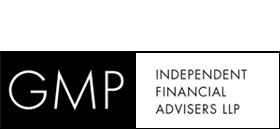Better Process – Better Portfolio
June 9th, 2010
One of the strongest arguments in favour of ethical investing has been its in-built risk management – in monitoring ethical issues, the socially responsible investor naturally avoids those companies at risk of a financial hit from ethical mismanagement. Till now, this has all been largely theoretical – very few companies have seen significant long-term financial damage from ethical transgressions – but the BP disaster has thrown this question into sharp relief. The outcome of the disaster is, as yet, unclear. But even if the oil spill into the Gulf of Mexico is stemmed shortly, it is likely to cost BP at least £10bn while upper estimates are in the region of £30bn. This may be a one-off, but if BP’s risk and recovery systems are found to have been flawed, and if it happens again, its survival as an independent company looks unlikely. Would ethical managers have picked this up? Almost certainly. BP has been off most ethical managers’ radars for some time. It is theoretically possible that a number of ‘lighter green’ managers could still invest with BP, using their position as shareholders to ‘engage’ with the company on sustainability issues, but in practice, most have not. With the benefit of hindsight, it is tempting to suggest BP has always been heading this way. Before this latest problem, investors had already had the chance to be swayed by the company’s controversial tar sands project or the oil spills in Alaska or the Texas City refinery explosion, in which 15 workers died. In addition, there have been investigations into claims BP attempted to rig the propane market. It is difficult enough for ethical fund managers to invest in oil companies, but BP has made it impossible. Given that so much of this information about BP was in the public domain, the question is perhaps not whether ethical funds are a better place to invest because they are managing this type of risk, but why it is not picked up by the risk management practices of conventional funds. Did any of them ever consider that £40bn might be wiped off BP’s market cap as a result of a single incident? BP remained the largest holding for many pension funds and conventional long-only funds. It also remains the largest holding for many equity income funds. It wouldn’t have taken a huge amount of due diligence to uncover that BP was in environmental hot water even before this incident. There is a danger that fund managers are underestimating ethical risk in portfolios. It only takes a couple of incidents like this in a couple of portfolio holdings to wipe out any outperformance. It is a strong argument in favour of active investing, but it is an even stronger argument in favour of proper ethical due diligence. For all your investment needs please call Mark or Clare at GMP Independent Financial Advisers LLP

